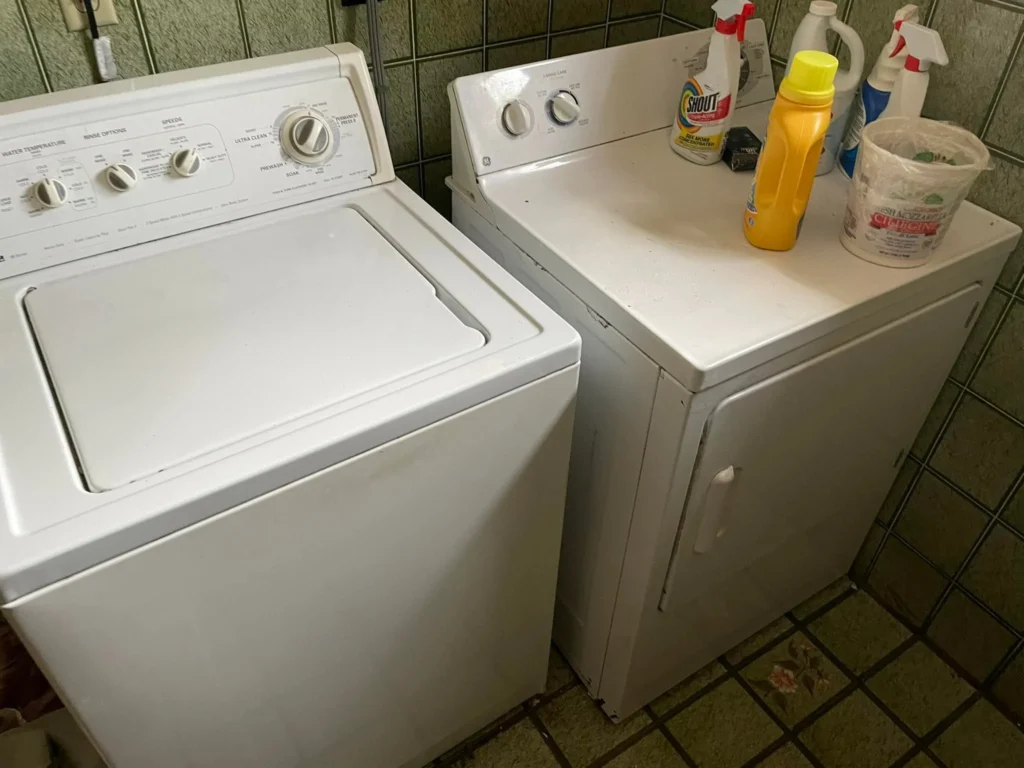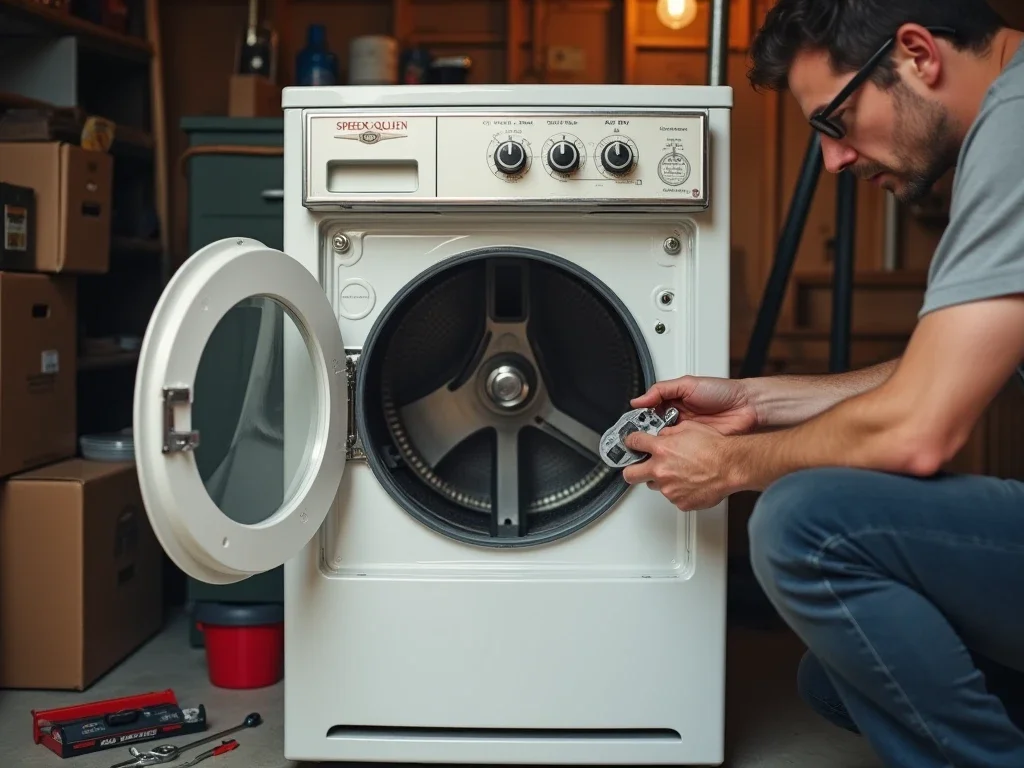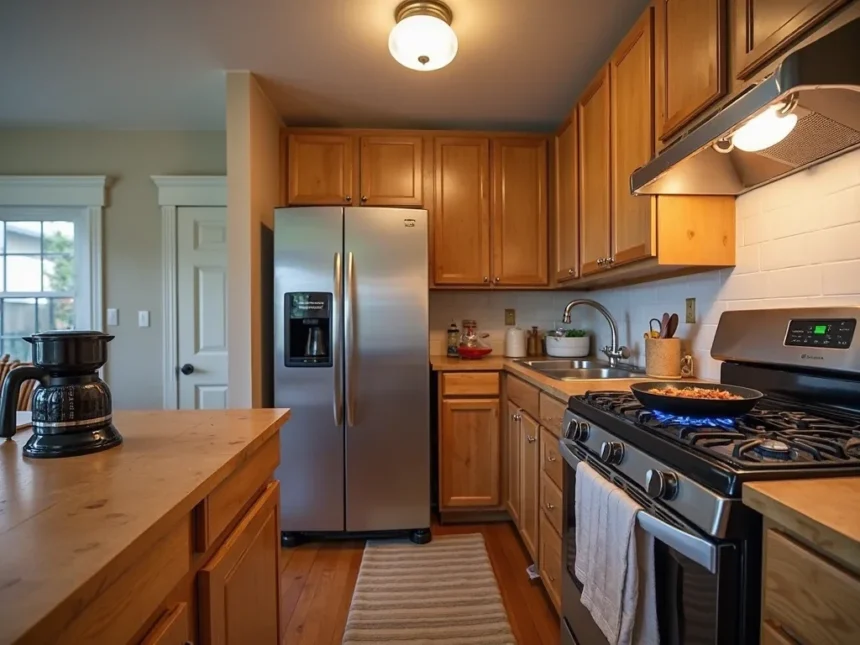Appliances are the workhorses of your home. They churn through dishes, keep your food cold, or blast heat to cook your dinner. These days, everybody’s hyping up “smart” gadgets—fridges with touchscreens, ovens you control with your phone, even toasters that tweet or some nonsense. But let’s be real: some of the best appliances out there don’t need Wi-Fi or a voice assistant to get the job done. They’re simple, tough, and designed to make your life easier without all the high-tech bells and whistles. Here’s why these no-frills designs often beat the smart stuff, with real talk and practical tips on what to look for.
They Just Work, No Fuss
Smart appliances sound cool—control your dishwasher from your phone, get a text when your laundry’s done. But half the time, you’re wrestling with a buggy app, spotty Wi-Fi, or some update that bricks your fridge’s touchscreen. Non-smart appliances skip all that. They’re built to do one thing and do it well, without needing a software patch or a reboot. Take a basic Whirlpool dishwasher from their entry-level line. No app, no Wi-Fi, just a few buttons and a cycle that cleans your plates like a champ. You push start, and it runs. Done.

Why’s this better? Because complexity breeds problems. A 2020 Reddit thread on r/unpopularopinion had folks ranting about smart appliances—like fridges with cameras that sound neat but crap out after a year, or washers that lock you into an app for basic settings. Simple designs last longer since there’s less to break. Look for appliances with mechanical controls (knobs, buttons) over digital panels. They’re cheaper to fix, and you can still find parts for a 10-year-old model. My buddy’s got a 15-year-old Frigidaire fridge—no screens, just a dial for coldness—and it’s still humming. Try that with a Samsung smart fridge.
They Save You Money Up Front and Over Time
Smart appliances cost a fortune. A basic GE electric range might run you $600, but a “smart” LG with Wi-Fi and an app? Try $1,200 or more. And for what? So you can preheat your oven from the grocery store? Most folks don’t need that. Non-smart designs keep it affordable, leaving cash in your pocket for other stuff—like actual groceries. Plus, simple appliances sip energy instead of guzzling it. Smart fridges with screens or Wi-Fi chips are always on, pulling power even when you’re not using them. A standard Energy Star-certified fridge without the tech can save you $20-50 a year on your electric bill.
Maintenance is another win. Smart appliances need specialized repairs—think $300 just to fix a glitchy circuit board. A basic model? You might pay $50 for a new thermostat or belt. Check out brands like Maytag or Amana for budget-friendly, no-tech options. Their washers and dryers are built like tanks, with simple motors and belts you can replace yourself with a YouTube video and a wrench. Over 10 years, you’re saving hundreds compared to a smart model that’s obsolete the second its app stops getting updates.
They’re Built to Last, Not to Trend
Smart appliances are like smartphones—they’re outdated in a couple years. Companies push new models with fancier apps or “AI” features, and suddenly your 3-year-old smart oven’s app doesn’t work because the server’s down. Non-smart appliances don’t play that game. They’re designed for function, not flash, so they stick around longer. Think about those old-school GE or Kenmore fridges from the ‘80s—some are still running in garages or basements. That’s because they used solid parts, not cheap chips that fry when the power flickers.

Durability’s key here. Look for appliances with stainless steel or heavy-duty plastic interiors over flimsy digital displays. Brands like Speed Queen make washers with metal tubs and gears, not plastic ones that crack. A Speed Queen top-load washer can last 20 years with basic care, while smart washers with touchscreens might croak in 5. Check reviews on sites like Consumer Reports for longevity ratings—non-smart models like the Whirlpool WTW5000DW washer score high for reliability. Simple designs don’t chase trends, so you’re not stuck replacing them when the “smart home” fad shifts.
They Keep Things Stupid-Simple to Use
Ever try teaching your parents to use a smart thermostat? Now imagine that with a fridge that needs an app to adjust the temp. Smart appliances sound convenient, but their menus, apps, and voice commands can be a headache. Non-smart designs are dead easy—turn a knob, push a button, done. My grandma’s got an old Maytag dryer with three settings: hot, warm, cool. She’s 80 and runs it like a pro. Try that with a Wi-Fi dryer that needs a firmware update.
This matters for everybody, not just older folks. When you’re tired, busy, or just want your coffee maker to make coffee, you don’t want to scroll through a touchscreen. Brands like Black+Decker or Cuisinart make basic drip coffee makers—$30, no app, just a switch and a timer. They brew just as good as a $500 smart coffee maker that texts you when it’s done. Look for appliances with clear labels and minimal settings. A GE gas range with analog knobs lets you dial in the heat without a PhD in app navigation. Simple’s faster, and it doesn’t make you feel like an idiot.
They Don’t Spy on You or Break When the Internet’s Down
Smart appliances are always listening or chatting with the cloud. That fridge with a camera? It’s sending data to some server, maybe even tracking what you eat. A 2021 post on X had users griping about smart TVs and appliances phoning home, with one guy saying his LG washer sent 500MB of data a day. Non-smart appliances don’t care about your Wi-Fi password or your grocery habits. They just do their job, no creepy data collection.
Plus, smart stuff’s useless without internet. If your router’s down or the company’s server crashes, good luck starting your “smart” dishwasher. A basic Bosch 100 Series dishwasher doesn’t need a connection—it runs when you hit the button, period. This is huge if you live somewhere with spotty internet or power outages. Pick appliances with standalone controls, not ones that rely on apps or cloud services. Brands like Frigidaire or Hotpoint make bare-bones fridges and stoves that work no matter what’s up with your Wi-Fi.
They Focus on What Actually Matters
Smart appliances love to brag about features you’ll never use—like a fridge that plays Spotify or an oven with a built-in recipe app. Non-smart designs stick to the stuff that counts: performance, capacity, and ease. A basic Sub-Zero fridge might not have a touchscreen, but its dual compressors keep your food fresher longer than a smart model’s single system. Or take a Viking gas range—no Wi-Fi, but its burners crank out 23,000 BTUs to sear a steak like you’re at a steakhouse.
These appliances nail the basics. A non-smart KitchenAid stand mixer has six speeds and a steel mixing bowl that’ll outlast you. Compare that to a “smart” mixer with an app that tells you when to add flour—same price, less power, more to break. When shopping, check specs over features. For fridges, look at cubic feet and shelf layout, not whether it has a tablet built in. For ovens, check BTU output or bake evenness, not if it talks to Alexa. Sites like The Spruce have buying guides that rank non-smart models for performance—check their picks for washers or ranges.
They Fit Any Home, No Tech Setup Needed
Smart appliances need a whole setup—Wi-Fi, apps, sometimes a hub like Alexa or Google Home. If you’re renting, moving, or just don’t want to deal with that, non-smart designs are plug-and-play. A basic Amana top-freezer fridge fits in any kitchen, no router required. Same with a Hotpoint electric coil range—plug it in, cook dinner. No syncing, no passwords, no “connect to 2.4GHz network” nonsense.
This is big for small spaces or older homes. Smart appliances often need strong Wi-Fi or modern wiring, which isn’t guaranteed in a city apartment or a 50-year-old house. Non-smart models don’t care about your signal strength. They’re also easier to move or sell. A standard GE microwave from Home Depot works anywhere, while a smart GE microwave might need a factory reset to unlink from your app. Stick with brands like Danby or Haier for compact, no-tech appliances if you’re in a tight spot—they’re cheap, reliable, and don’t demand a smart home.
How to Pick the Best Non-Smart Appliances
So, you’re sold on keeping it simple. Here’s how to find the best non-smart appliances that’ll last and make your life easier:
- Check Build Quality: Look for metal or heavy plastic parts, not flimsy digital screens. Knobs and buttons should feel solid, not wobbly. Brands like Whirlpool, Maytag, or Speed Queen are known for tough builds.
- Read Reviews: Hit up Consumer Reports or The Spruce for reliability ratings. Avoid models with lots of “stopped working after a year” complaints. Reddit’s r/BuyItForLife has threads on durable, non-smart appliances—worth a skim.
- Focus on Specs: For fridges, check cubic feet and energy use (Energy Star’s a good bet). For ranges, look at burner power (BTUs) or oven size. Washers? Cycle options and drum size matter more than Wi-Fi.
- Shop Basic Lines: Big brands like GE, Frigidaire, or Bosch have entry-level models without smart features. Check Home Depot or Lowe’s for their “classic” or “essential” series.
- Ask About Repairs: Before buying, ask the store about parts availability. Non-smart models usually have common parts you can find for years, unlike smart ones that get discontinued fast.
Why It All Matters
These non-smart appliances—fridges with dials, washers with knobs, ranges with basic burners—aren’t sexy. They don’t show up in TikTok ads or CES demos. But they’re the backbone of a home that just works. They save you cash, last longer, and don’t make you feel like you need a tech degree to make toast. Start with one—like a basic Maytag washer or a no-frills GE fridge—and see how much easier life is without an app crashing mid-cycle. Track how long it lasts or how much you save on repairs. In a year, you’ll wonder why anyone bothers with a fridge that needs a software update.
Real talk: no appliance is perfect. Even simple ones can break, and you might miss a smart feature like remote preheating once in a blue moon. But for most of us, the trade-off’s worth it. You get reliability, affordability, and peace of mind, without your oven sending your cooking habits to some cloud server. Next time you’re shopping, skip the touchscreen models and grab something that’ll still be running when the “smart home” trend’s long gone.




